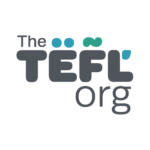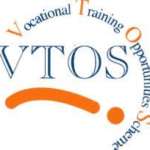The English poet William Wordsworth once wrote, Heaven lies about us in our infancy . Montessori education tries to preserve this sense of purity through abstaining from imposing the limitations of instructive learning on the child. Instead, he or she is encouraged to self-develop through engaging with his or her environment. The reasoning behind this approach is that by providing a stimulating and interactive place of learning, the child is afforded the opportunity to fully develop his or her human potential. To this end, the Montessori school environment must be an extremely well ordered and harmonious one that is tailored to meet the specific psychological needs of different age groups. Part-time courses in Montessori Teaching will therefore instill in their students a high degree of sensitivity to the different stages of a child’s psychological development.
What does a Montessori course involve
Participants on a part-time course in Childhood Development will gain an excellent overview on the development of children up to the age of six; however, those who have children entrusted to their care will naturally need extensive training. While it is possible to pick up a Childhood Development Certificate in a relatively short period of time, those with serious aspirations of working in Montessori education will likely need to add to the qualification. One way of doing so is by enrolling on a part-time course in Early Childhood & Education (ECCE and Montessori). This Level 6 programme will teach learners to apply an extensive range of pedagogical skills in the effective delivery of early childhood care and education. Students will be given training in responding appropriately to the care and educational needs of children of different ages, stages, interests and abilities, while taking into account diversity and promoting equality and inclusion. Modules include Early Learning Philosophy, Child Development, Early Childhood Curriculum, Childhood Legal, Social and Health Studies, and Communications. They will also be given the chance to gain some practical insights through work experience. Another thing to note is that gaining a major award in Early Childhood Care and Education at Level 6 will not just assist learners, but will also benefit the Childcare facility that the learner will work with as the qualification enables one to apply for the free Pre-school ECCE grant. Another route that learners can take is the part-time Montessori Teaching Diploma, which is also a Level 6 qualification. The course provides a solid, integrated approach to the delivery of ECCE training, and aims to develop the highest standard of professional competence in participants by establishing a broad knowledge of educational practices as laid down by Siolta (the National Quality Framework for Early Childhood Education) and Aistear (the Framework for Early Learning). Students on the programme will receive training in Montessori Philosophy, Arts and Culture; Montessori Language Development; and Sensorial Education. They will also benefit from undergoing 50 hours of work experience over the duration of the course, during which they will apply their skills to child development and learning in a Montessori school.
Why do it
Being part of the formative years of a person s development is a huge responsibility, but it is also a privilege. In order to provide a child with the best possible preparation for the next stage of their young lives, it is of essential importance that educators and carers are trained to an appropriately high level.
What comes next
Those hoping to find work as Montessori teachers will need to hold at least a Level 5 qualification in the area (however, note that many schools will ask that candidates have at least a Level 7 qualification), though a greater degree of training and experience will significantly improve one s chances of securing employment. Graduates of the programmes discussed above may therefore choose to move on to third-level education or further training.
At a glance
Learners who may be unable to attend classes in person can avail of distance-learning Montessori Teaching courses (Level 6), which can last for 5 to 8 months. A part-time Early Childhood & Education (Level 6) programme will last for one year.


















